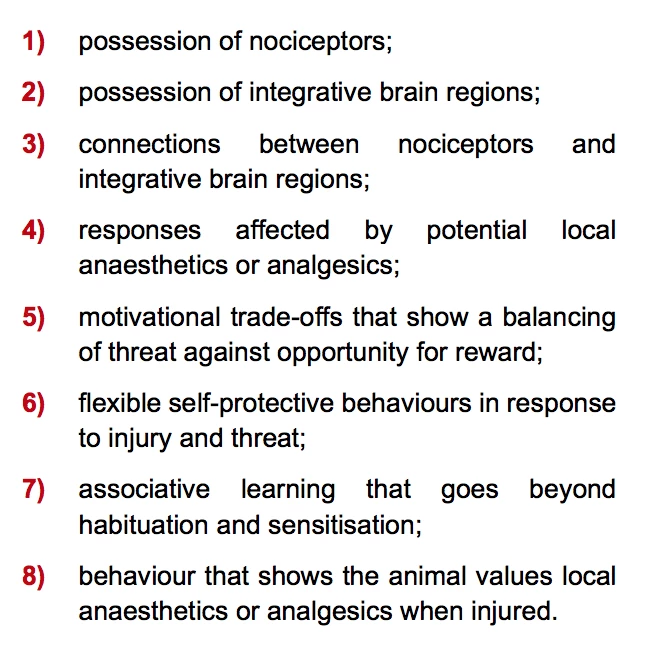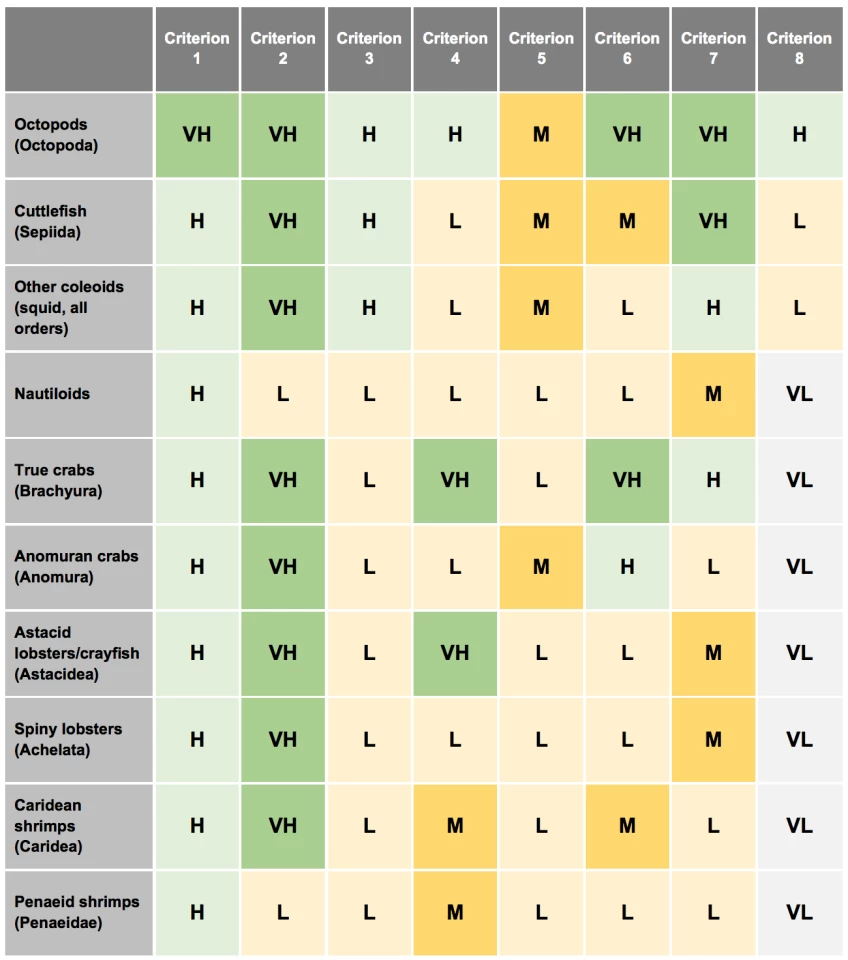A new animal welfare bill moving through UK parliament will now include crabs, octopuses, and lobsters after an independent research review concluded decapod crustaceans and cephalopod molluscs should be considered sentient beings. The review found strong scientific evidence these invertebrates are capable of feelings such as pain and distress.
Earlier in the year the Animal Welfare (Sentience) Bill was introduced to UK parliament. The bill was designed to establish all vertebrate animals as sentient, therefore ensuring animal welfare is legally enshrined in future legislations.
Sentience is defined as the capacity for an organism to experience feelings, and is more than simply being able to feel a sensation of pain. Instead, sentience is related to a capacity for experiencing joy, excitement and distress.
As part of the introduction of the Animal Welfare (Sentience) Bill an independent review was established to investigate the capacity for sentience in a number of invertebrates. Two general groups of invertebrates were specifically investigated: decapod crustaceans (such as crabs, lobsters and crayfish) and cephalopod molluscs (including octopuses, squid and cuttlefish).

Led by researchers from the London School of Economics and Political Science (LSE), the review established eight criteria by which animal sentience can be established. Looking at over 300 scientific studies the report established a confidence level for each criteria, spanning from no confidence to very high confidence.
“On our scheme, high or very high confidence that an animal satisfies seven or more of the criteria amounts to very strong evidence of sentience,” the report states. “High or very high confidence that an animal satisfies five or more criteria amounts to strong evidence of sentience, and high or very high confidence that an animal satisfies three or more criteria amounts to substantial evidence of sentience.”
The highest estimation of sentience was seen in octopuses, with high or very high confidence in seven of the eight criteria. The lowest sentience rating was measured in nautiloids, a subgroup of cephalopods only fulfilling high confidence in one of the eight criteria.

The findings of the review have led to an amendment in the Animal Welfare (Sentience) Bill, which will now include all decapod crustaceans and cephalopod molluscs. Jonathan Birch, an author on the review from the LSE’s Centre for Philosophy of Natural and Social Science, says he is pleased these invertebrates will now be included in future animal welfare decisions.
“After reviewing over 300 scientific studies, we concluded that cephalopod molluscs and decapod crustaceans should be regarded as sentient, and should therefore be included within the scope of animal welfare law,” says Birch. “The amendment will also help remove a major inconsistency: octopuses and other cephalopods have been protected in science for years, but have not received any protection outside science until now.”
A UK government statement announcing the amendment indicates this inclusion of certain animals in the welfare bill will not retroactively change current industry practices.
“Today’s announcement will not affect any existing legislation or industry practices such as fishing,” the government statement reads. “There will be no direct impact on the shellfish catching or restaurant industry. Instead, it is designed to ensure animal welfare is well considered in future decision-making.”
However, the LSE sentience review does offer a number of recommendations for changes to current commercial practices. The review particularly focuses on methods used to slaughter decapods such as crayfish and lobster.
“We recommend that the following slaughter methods are banned in all cases in which a more humane slaughter method is available, unless preceded by effective electrical stunning: boiling alive, slowly raising the temperature of the water, tailing (separation of the abdomen from the thorax, or separation of the head from the thorax), any other form of live dismemberment, and freshwater immersion (osmotic shock),” the review recommends.
The review also indicates, in light of these sentience findings, that practices such as declawing, nicking, and eyestalk ablation be banned. A ban on the sale of live decapod crustaceans to untrained handlers is also suggested in the review.
Source: LSE





